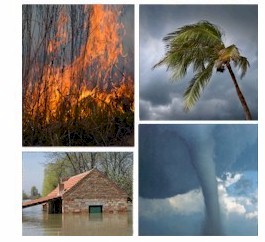|
|
DSC Tech Library
 This section of our technical library presents information and documentation relating to Emergency Broadcasting Systems and Disaster Recovery Applications.
Should an emergency arise in your community, our 911 broadcast service can deliver large volumes of calls quickly using thousands of phone lines simultaneously. In the event of a blizzard, wild fire or devastating flood, your community can be notified quickly given specific instructions if an evacuation is required using our emergency broadcasting service. If a dangerous chemical spill occurs in your community, you can target specific areas to call. If a severe snow storm hits your area, your community can be notified of school closings or event cancellations.
This section of our technical library presents information and documentation relating to Emergency Broadcasting Systems and Disaster Recovery Applications.
Should an emergency arise in your community, our 911 broadcast service can deliver large volumes of calls quickly using thousands of phone lines simultaneously. In the event of a blizzard, wild fire or devastating flood, your community can be notified quickly given specific instructions if an evacuation is required using our emergency broadcasting service. If a dangerous chemical spill occurs in your community, you can target specific areas to call. If a severe snow storm hits your area, your community can be notified of school closings or event cancellations.
The following article relates to emergency broadcasting and how it is used in various communities today. This information was obtained from the internet with attribution to the author and/or community.
System alerts deaf Mainers to emergencies
By PAUL CARRIER, Portland Press Herald Writer
AUGUSTA — Jan DeVinney of South Portland, who is deaf, showed up for work during the ice storm of 1998 because she didn't know that her office was closed. But times have changed. When a recent malfunction shut down the southbound lane of the Casco Bay Bridge while DeVinney was headed that way, a text message on her pager notified her and she took a different route home.
Deaf Mainers say they often are the last to know what is going on when disaster strikes or the weather turns ugly. Now, help has arrived. Gov. John Baldacci introduced a notification system Friday that uses pagers and special radios to keep deaf and hard-of-hearing Mainers informed in emergencies.
The program has been operating since March 1, but it has not been heavily publicized until now.
The program, which features what Baldacci called "a state-of-the-art system," provides access to written versions of all statewide notices issued by the emergency alert system, such as thunderstorm warnings and child-abduction announcements.
In addition, participants can get county-by-county alerts involving weather forecasts, road and bridge closings, and other emergency announcements.
Largely funded by the Department of Homeland Security, the new system is now serving fewer than 200 people. The potential is much larger than that.
More than 100,000 Mainers have little or no hearing, according to DeVinney, who runs the state Division of Deafness, and supporters hope that Friday's official launch of the program will boost enrollment as word gets out.
The new system is "the most sophisticated and comprehensive of its kind in the nation," Baldacci said during a news conference at the Blaine House.
An interpreter translated the governor's spoken remarks into sign language for deaf people in the audience, then translated the comments of deaf speakers from sign language into English.
The Maine Center on Deafness in Portland is distributing the pagers and radios to those who apply for them, although people who already have pagers can sign up, too.
The new devices include a one-way pager valued at $85; a $50 two-way pager that allows users to receive and send messages; and a $120 weather-alert radio that comes equipped with a digital readout, or amplification for those with some hearing.
People with incomes under 225 percent of the poverty level can get any of the three devices for free, although they do have to pay monthly service fees for either of the pagers, according to Mary Edgerton of the Maine Center on Deafness.
Mainers with higher incomes will be charged for the equipment on a sliding scale, depending on their ability to pay. They also will have to pay service charges on the pagers, which, like cell phones, do not work in every part of the state.
"I'm a deaf person and I cannot emphasize enough how important this program is," said Jonathan Connick, executive director of the Maine Center on Deafness. "We now have the potential to avoid some serious situations."
Connick said the two-way pager not only allows text messaging between pagers, but also allows people to call telephone users through a relay service.
"This emergency notification system is a dream come true for me," DeVinney said. Gone are the days when she failed to boil drinking water after a flood because she never got the warning, or she puzzled over the nasty weather outside her home because she did not know that a hurricane had hit.
A standard radio does deaf people no good in such situations, DeVinney said, and even focusing full attention on a television newscast is an iffy proposition because breaking news is not usually captioned.
The Department of Homeland Security provided $25,000 to set up the new program and $18,000 to buy the equipment, according to Ginnie Ricker of the Maine Emergency Management Agency, which helped to create the system. Edgerton said another $26,000 came from a state fund that gets its money from a surcharge on telephone bills.
Information about the program is available from the Maine Center on Deafness at 797-7656 or 1-800-639-3884. Both numbers are valid for voice calls or text telephone (TTY) calls.
|


 This section of our technical library presents information and documentation relating to
This section of our technical library presents information and documentation relating to